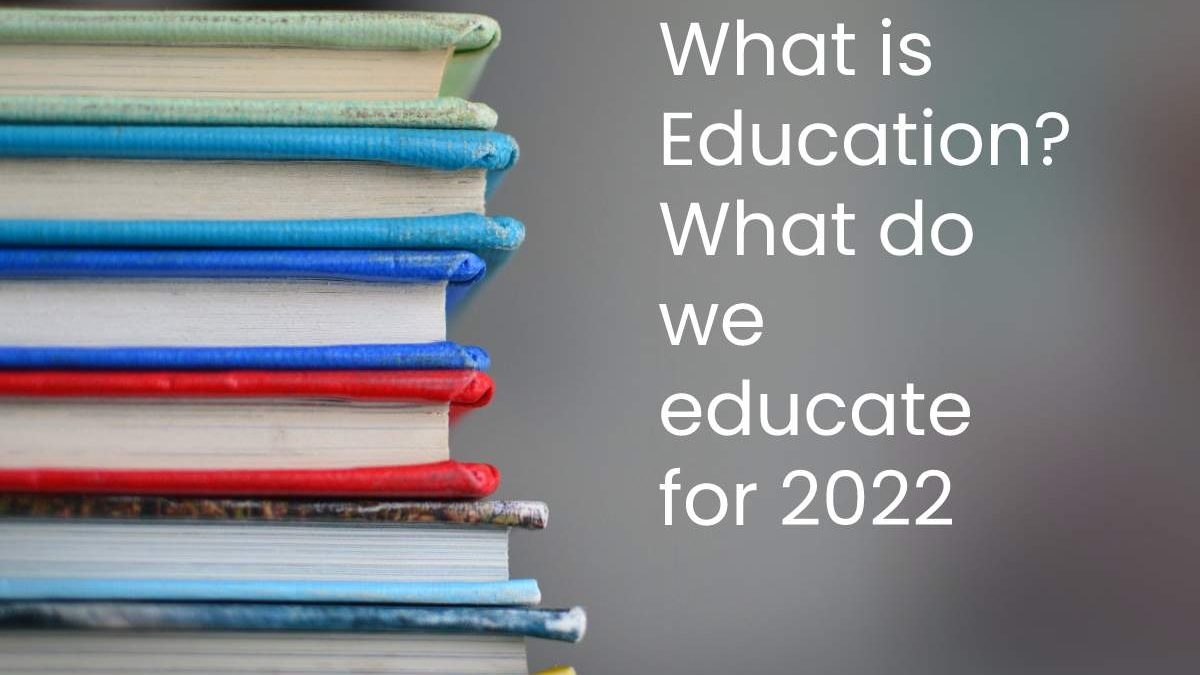Education hopes you well, and if you are a teacher, I hope you are enjoying your well-deserved vacation. Today we are going to be talking about a topic that has blown my mind. What do we educate for? I don’t know if you have asked yourself the same question, but there are moments in my life as a teacher, director and educational consultant, where I ask myself, why do we educate? And maybe you must be thinking, “Joseph, what’s wrong with you, are you going crazy? That question is very simple to answer.” That’s what I believed until I tried to explain it for a post, and for the book I’m writing (you will hear from him first, before anyone else).
Table of Contents
But, Back To The Key Question. What Do We Educate For?
Well let’s try to break this down a bit. And I want to clarify before continuing, that what I am going to write in this post is my opinion and in no way represents any scientific study, but I think that as teachers we should pay attention to this topic. We teach all of our students the same core subjects, understand yourself, Spanish, English, social studies, science, and math.
Why In Compulsory Education
do we give these courses as compulsory and the others as electives, such as theater, music, entrepreneurship, among others, are they not compulsory? I have asked several teachers this question and they tell me that not everyone likes the arts. I keep thinking, I did not like mathematics, however, they forced me to take it. But, Joseph is that mathematics is used in all disciplines, let’s be honest, with the mathematics that they teach you up to eighth grade is enough for the vast majority of concentrations. (You have already realized that I am an art teacher).
I repeat, this is my opinion, I am one of those who believe that these are the basic subjects that should be implemented until middle school. Then in middle school, students should be placed according to their talents and abilities. And this is not a crazy idea, there are several educational systems around the world that use it, you can find information about it, Or later I will do a Facebook live or it will be a topic for when I launch my podcast (by the way, get ready that in July this project, so that they can not only read me, but listen to me, But that is another topic).
In a Skills- and Interest-Based Resume We can Do This
With advances in psychology, today we can give eighth graders interest tests and see where they’re leaning and offer them courses base on that. This is somewhat similar to what has been tried to do with specialize and vocational schools, but this should be the rule, not the exception or an elite type of school.
This is the education system that I dream of, a student from kindergarten to eighth grade receives all the skills in the basic subjects, importance is given to language. Mathematics and science. The interest test is administer and the student is directed to subjects that will help
It is sad how I have seen students who do not enter specialized theater universities because they did not pass the auditions, because they did not receive the previous training. Even when they had shown their interest and desire to dedicate themselves to this discipline and use the theater as an example. But the same happens with a number of disciplines.
When We Look At Dropout Statistics In Schools
the largest percentage occurs between eighth and ninth grade (I spent time working in a school with dropouts). When you talk to them you realize that. In the vast majority of dropouts. It because they lost interest in school. They didn’t see the importance of what they were studying.
Fellow teachers, not all students interested in going to college, and technical degrees are also important in our society. And the system it built. Benefits those whose goal is to get a high school degree or more. But not for those who interest in getting a technical degree.
In my opinion. We educating for university. When this is not everyone’s goal. So we must review our system and see how we can improve it so. That we can address one of the great problems of education.



